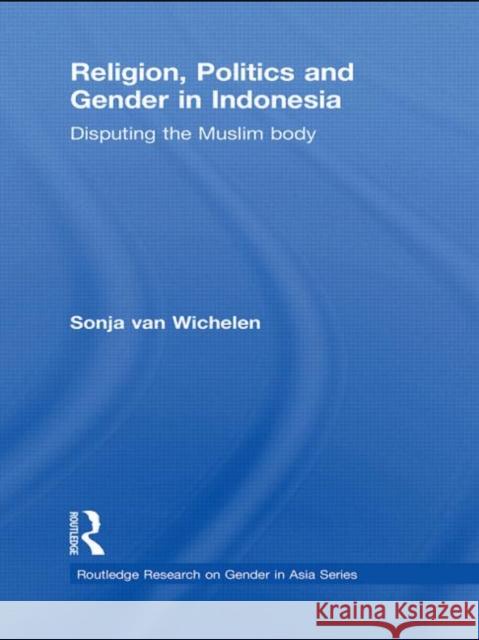Religion, Politics and Gender in Indonesia: Disputing the Muslim Body » książka
Religion, Politics and Gender in Indonesia: Disputing the Muslim Body
ISBN-13: 9780415497244 / Angielski / Twarda / 2010 / 184 str.
Religion, Politics and Gender in Indonesia: Disputing the Muslim Body
ISBN-13: 9780415497244 / Angielski / Twarda / 2010 / 184 str.
(netto: 744,80 VAT: 5%)
Najniższa cena z 30 dni: 725,69
ok. 16-18 dni roboczych.
Darmowa dostawa!
The political downfall of the Suharto administration in 1998 marked the end of the "New Order" in Indonesia, a period characterized by 32 years of authoritarian rule. It opened the way for democracy, but also for the proliferation of political Islam, which the New Order had discouraged or banned. Many of the issues raised by Muslim groups concerned matters pertaining to gender and the body. They triggered heated debates about women's rights, female political participation, sexuality, pornography, veiling, and polygamy. The author argues that public debates on Islam and Gender in contemporary Indonesia only partially concern religion, and more often refer to shifting moral conceptions of the masculine and feminine body in its intersection with new class dynamics, national identity, and global consumerism. By approaching the contentious debates from a cultural sociological perspective, the book links the theoretical domains of body politics, the mediated public sphere, and citizenship. Placing the issue of gender and Islam in the context of Indonesia, the biggest Muslim-majority country in the world, this book is an important contribution to the existing literature on the topic. As such, it will be of great interest to scholars of anthropology, sociology, and gender studies.
The political downfall of the Suharto administration in 1998 marked the end of the "New Order", a period characterized by 32 years of authoritarian rule. Opening the way for democracy, it included the unlocking of Indonesian politics to the influence and participation of political Islam, which the New Order discouraged or banned. Many of the Islamic issues concerned matters relating to gender and the body, and they have triggered profound debates about women’s rights, female political representation, sexuality, pornography, veiling, and polygamy.
The author examines these different cases that have been at the forefront of public attention in the past decade. She examines occurrences, events, or debates in Indonesian society over "Islam and gender" and assesses how processes of Islamization and democratization have shaped gender relations in post-authoritarian Indonesia and how, in turn, gender has informed these socio-political and cultural processes.
The book argues that in contemporary Indonesia, Muslim politics have worked with, rather than against, democratic principles. It illustrates that debates on the subject do not only allude to Muslim politics, but often relate to other central issues of politics and identity, such as new class dynamics, shifting ideas of femininity and masculinity, the production of ethnicity, global consumerism, and political power relations.











